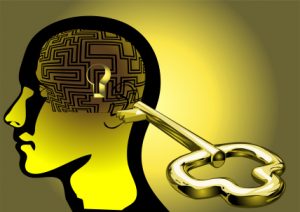One great way to manage stress, overcome anxiety, stop bad habits, or lose weight is through self hypnosis. Self hypnosis is not as hard as some people think and it has many benefits. It can help reframe one’s mind and outlook on life and help make real change. As stated, it can help with a variety of issues. Some utilize it as a way to handle sleep issues, others utilize it for weight loss. Others who need aid in stop smoking, will turn to self hypnosis to help deal with the urges. It is an excellent stress management tool to help people also overcome anxiety and other stressors, including reframing and self confidence as well as pain management. A certified Clinical Hypnotherapist can also aid individuals in learning the skill of self hypnosis.

The article, “What Is Self-Hypnosis and How Do I Do It?” from HealhEssentials of the Cleveland Clinic look at the variety of ways self hypnosis can benefit and help individuals. In addition, the article gives a preliminary look at how to induce basic self hypnosis. Certified hypnotherapists can also help individuals learn how to do this simple procedure. The article states,
“Self-hypnosis is one of many useful techniques for changing negative thoughts, emotions and behaviors. It can also help you achieve your goals and persevere in the face of setbacks. But it’s not a cure-all. And, as Williams puts it, “it may take some time and practice to achieve your desired results.” Retraining your mind takes time and can’t happen in isolation. Whether you’re seeing a therapist, practicing meditation or using other methods to effect change in your daily life, make sure you’re not relying exclusively on self-hypnosis. After all, the magic isn’t in the practice. It’s in realizing your own power to make change happen.”
“What Is Self-Hypnosis and How Do I Do It?”. HealthEssentials. February 17th, 2023. Cleveland Clinic.
To read the entire article, please click here
Commentary
Self-hypnosis is a psychological phenomenon in which an individual induces a hypnotic state through self-suggestion. It is typically characterized by intense relaxation and heightened suggestibility, which allows the individual to focus their attention on specific mental tasks or experiences such as cognitive restructuring, imagery rehearsal, and memory enhancement. Through self-induced hypnotic states, individuals can access their subconscious mind to explore areas of personal growth and development.
Self hypnosis is typically achieved by inducing a trance-like state, often through relaxation techniques such as deep breathing, progressive muscle relaxation, and guided visualization. The individual then focuses attention on a specific suggestion or image to reinforce desired behaviors or to access past memories or repressed emotions. Self hypnosis is a process whereby an individual induces a state of suggestibility and heightened awareness that can be used to address maladaptive behaviors, improve self-regulation, and enhance wellbeing. It typically involves four distinct steps: (1) creating a conducive environment; (2) entering into a relaxed state; (3) inducing the hypnotic trance; and (4) inducing therapeutic suggestions.
Self-hypnosis offers a range of potential psychological benefits, ranging from improved cognitive functioning and stress reduction to enhancing goal attainment and promoting greater personal insight. This is accomplished by accessing the subliminal power of one’s subconscious mind through the induction of an altered state of consciousness. As such, self-hypnosis may be considered an effective psychotherapeutic tool for addressing a variety of mental health issues and for creating positive behavioral changes in the individual. It can help one with sleep issues, diet issues, altering bad habits such as smoking, as well as help one with anxiety and stress. It can also help one reframe situations in life as well as serve as a way to manage pain. The benefits are immense for those looking to utilize it.
Self Hypnosis vs Clinical Hypnotherapy
Hypnosis and hypnotherapy are related psychological phenomena, but distinct in terms of their practice and application. Hypnosis is a state of altered consciousness in which the individual’s attention is focused, typically resulting in greater suggestibility, enhanced concentration, and relaxation. Hypnotherapy refers to the use of hypnosis to induce change in behavior or thought patterns through suggestion or visualization. This state is induced by an external agent, typically referred to as a hypnotist. The hypnotist then employs various techniques, such as relaxation or imagery, to help the individual reach this altered state of consciousness.
Conclusion
In conclusion, self hypnosis is a simple and effective tool that can be used to bring about positive change in one’s life. It has many benefits, such as improving concentration and creativity, reducing stress, promoting relaxation, improving self-esteem and confidence, and helping to manage pain. It can help to reduce stress, create positive thoughts, increase focus and productivity, and even improve self-confidence. Self hypnosis is an accessible method of relaxation and healing that anyone can learn how to do. With patience and practice, it may lead to improved wellbeing for many individuals. It is important to remember that although it can result in quick results, the success of self hypnosis depends on practice. Self hypnosis should also not be used as an alternative for professional mental health care if needed.

AIHCP offers a certification in Clinical Hypnotherapy for those seeking more than mere hypnosis. The program is online and independent study and open to qualified professionals seeking a four year certification as a Clinical Hypnotherapist. Please review AIHCP’s Clinical Hypnotherapy Certification and see if it matches your academic and professional goals.
Additional Resources
“Self-Hypnosis Is Essentially A Deep Meditation: Here’s How It’s Done”. Sarah Regan. February 21st, 2021. MGBMindfulness. Access here
“This Self-Hypnosis Technique Will Bring You Instant Calm”. Sarah Garone. August 31st, 2018. Healtline. Access here
“Self-Hypnosis for Everyday Life”. Beverly Flaxington. September 13th, 2013. Psychology Today. Access here
“Self-Hypnosis for Anxiety: How to Use Hypnosis to Reduce Anxiety”. Jack Harley. December 11th, 2020. Mindset Health. Access here


